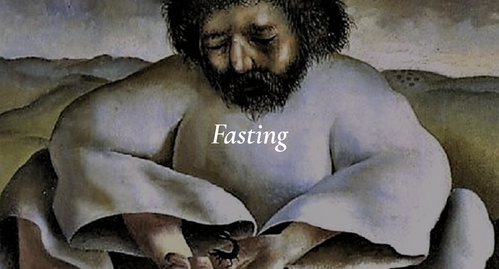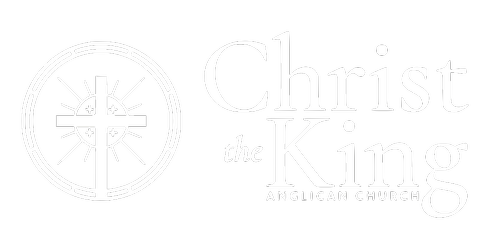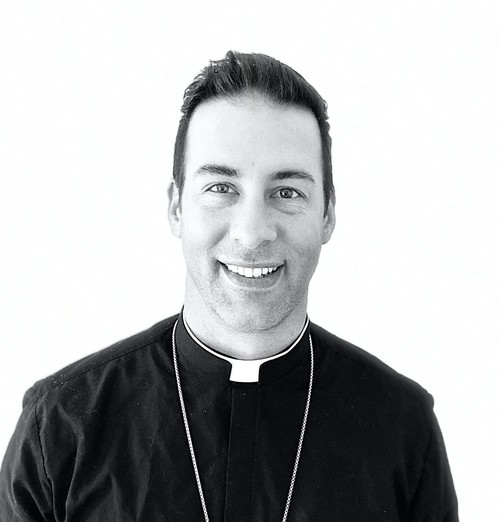
There are two ascetical modes in the life of a Christian: feasting and fasting. When we fast, we are saying "No" to the World, the Flesh, and the Devil. To fast is to live as a pilgrim whose home is in heaven. Fasting is an implicit testimony to oneself that (because of Sin) Creation can lead us away from God. Therefore, we abstain from it. To feast, on the other hand, testifies that Creation can bring us closer to God and that God's plan is to redeem Creation. Both of these ideas are true, therefore the Church oscillates between the ascetical practices of feasting and fasting throughout the weeks and seasons of the liturgical year.
When are Anglicans supposed to fast?
Every Friday, in commemoration of Jesus' death on the cross, the Prayer Book calls for a measure of fasting and abstinence (a "mini-Good Friday"). As the Prayer Book indicates, every Sunday is a feast day, because it is a celebration of Jesus' resurrection (a "mini-Easter"). Traditionally, "fasting" has meant abstaining from all food or meat. Over time, it has incorporated other forms of abstinence as well.
Near the beginning of the prayer book on page li, after the Lectionary and Calendar, there is a page titled, “Tables and Rules for the Movable and Immovable Feasts”. There you’ll find “A Table of Fasts.” It reads:
A TABLE OF FASTS.
Ash Wednesday and Good Friday
OTHER DAYS OF FASTING, ON WHICH THE CHURCH REQUIRES SUCH A MEASURE OF ABSTINENCE AS IS MORE ESPECIALLY SUITED TO EXTRAORDINARY ACTS AND EXERCISES OF DEVOTION.
I. The Forty Days of Lent.
II. The Ember Days at the Four Seasons, being the Wednesday, Friday. and Saturday after the First Sunday in Lent, the Feast of Pentecost, September 14, and December 13.
III. All the Fridays in the Year, except Christmas Day, and The Epiphany, or any Friday which may intervene between these Feasts.
A few observations.
First, notice in the paragraph written in all caps that it says, ...THE CHURCH REQUIRES...” The Book of Common Prayer is intended to be a Common Rule of Life that the Church, acting as Mother, gives her children. This Rule comes with an expectation of holy obedience.
Second, it uses the word “Abstinence” instead of “Fasting.” Abstinence is a more general term. It means that you should refrain from something. This does not, of course, refer to something sinful, which we should always refrain from. It refers to things benign, but perhaps what our soul is inordinately attached to in a way that is addictive, distracting, or providing false consolation.
Third, notice that the “measure of abstinence” is not prescribed. This is left to the conscience and discretion of the individual Christian. In other words, the Church requires that you fast, that you fast weekly, but it does dictate from what you must fast. It only states that you must, for the health of your soul, abstain from something.
Fourth, the forty days of Lent do not include the Sundays. Of note is that Advent is commonly considered a “little Lent.” The 1928 BCP, compared to older versions of the Prayer Book and other traditions is notoriously light on its requirements for fasting and/or abstinence.
Fifth, Ember Days are times of prayer for clergy and especially those who are entering Holy Orders.
Perhaps the most surprising for most is the weekly fast on all but two Fridays of the year. There is a weekly rhythm of feasting on Sundays. The weekly rhythm of fasting makes sense when we keep this in mind. Fasting on Fridays creates a pattern of preparation for Holy Communion.
Of course, for us in our comfortable and individualistic Western society, the idea of fasting this much and within these set schedules may seem difficult, but even small steps in this direction could open doors for the Spirit to speak and work in and through us in a way that our constant comforts can cloud out. You are encouraged to begin making the discipline of Fasting a regular part of of your weekly rhythm. Start small and simple, but commit to it and abide by that commitment for the love of God.
Near the beginning of the prayer book on page li, after the Lectionary and Calendar, there is a page titled, “Tables and Rules for the Movable and Immovable Feasts”. There you’ll find “A Table of Fasts.” It reads:
A TABLE OF FASTS.
Ash Wednesday and Good Friday
OTHER DAYS OF FASTING, ON WHICH THE CHURCH REQUIRES SUCH A MEASURE OF ABSTINENCE AS IS MORE ESPECIALLY SUITED TO EXTRAORDINARY ACTS AND EXERCISES OF DEVOTION.
I. The Forty Days of Lent.
II. The Ember Days at the Four Seasons, being the Wednesday, Friday. and Saturday after the First Sunday in Lent, the Feast of Pentecost, September 14, and December 13.
III. All the Fridays in the Year, except Christmas Day, and The Epiphany, or any Friday which may intervene between these Feasts.
A few observations.
First, notice in the paragraph written in all caps that it says, ...THE CHURCH REQUIRES...” The Book of Common Prayer is intended to be a Common Rule of Life that the Church, acting as Mother, gives her children. This Rule comes with an expectation of holy obedience.
Second, it uses the word “Abstinence” instead of “Fasting.” Abstinence is a more general term. It means that you should refrain from something. This does not, of course, refer to something sinful, which we should always refrain from. It refers to things benign, but perhaps what our soul is inordinately attached to in a way that is addictive, distracting, or providing false consolation.
Third, notice that the “measure of abstinence” is not prescribed. This is left to the conscience and discretion of the individual Christian. In other words, the Church requires that you fast, that you fast weekly, but it does dictate from what you must fast. It only states that you must, for the health of your soul, abstain from something.
Fourth, the forty days of Lent do not include the Sundays. Of note is that Advent is commonly considered a “little Lent.” The 1928 BCP, compared to older versions of the Prayer Book and other traditions is notoriously light on its requirements for fasting and/or abstinence.
Fifth, Ember Days are times of prayer for clergy and especially those who are entering Holy Orders.
Perhaps the most surprising for most is the weekly fast on all but two Fridays of the year. There is a weekly rhythm of feasting on Sundays. The weekly rhythm of fasting makes sense when we keep this in mind. Fasting on Fridays creates a pattern of preparation for Holy Communion.
Of course, for us in our comfortable and individualistic Western society, the idea of fasting this much and within these set schedules may seem difficult, but even small steps in this direction could open doors for the Spirit to speak and work in and through us in a way that our constant comforts can cloud out. You are encouraged to begin making the discipline of Fasting a regular part of of your weekly rhythm. Start small and simple, but commit to it and abide by that commitment for the love of God.
Is fasting legalistic?
One of the aspects of Fasting that might be challenging for people is that the Church prescribes a fast on a particular day: Friday. This might seem like a legalistic imposition. A few comments here will be helpful. First, Christians don’t earn salvation through acts of devotion. By prescribing fasting on Fridays, the Church is simply pointing out how we can imitate Christ, particularly in the last few days of His earthly ministry. We fast with Christ on the day of His Suffering just like we celebrate with Christ on the day of His Resurrection. The Church prescribes both in order to participate in the mystery of Christ’s incarnation together.
Second, the members of the Church are invited to participate in the Rule that the Church keeps. The Church keeps the Daily Office, the feasts, and the fasts of the Prayer Book. Yet, not every member keeps these entirely. The clergy and monastics take vows to keep it fully, yet the prescriptions of the Church are not demanded of each individual. A working father might not be able to keep the full Daily Offices. A pregnant mother or a sickly person might not be able to fast at all, much less on Fridays. But, the Church as a whole walks the Way of Jesus in steps that are handed down from the earliest of times and in accordance with the Scriptures. Members are invited into that Way.
This framing helps us to think of fasting not as a legalistic imposition, but rather as a tool by which we can progress in our spiritual lives. Fasting is indeed just such a time-tested tool for spiritual growth, which we can see in the writings of the church fathers and subsequently the Anglican Church throughout the centuries.
Second, the members of the Church are invited to participate in the Rule that the Church keeps. The Church keeps the Daily Office, the feasts, and the fasts of the Prayer Book. Yet, not every member keeps these entirely. The clergy and monastics take vows to keep it fully, yet the prescriptions of the Church are not demanded of each individual. A working father might not be able to keep the full Daily Offices. A pregnant mother or a sickly person might not be able to fast at all, much less on Fridays. But, the Church as a whole walks the Way of Jesus in steps that are handed down from the earliest of times and in accordance with the Scriptures. Members are invited into that Way.
This framing helps us to think of fasting not as a legalistic imposition, but rather as a tool by which we can progress in our spiritual lives. Fasting is indeed just such a time-tested tool for spiritual growth, which we can see in the writings of the church fathers and subsequently the Anglican Church throughout the centuries.
What are the spiritual benefits of fasting?
Fasting trains us to say “NO” to our sinful flesh by saying “NO” to our bodies.
Fasting teaches us that our corporal bodies, though created good, are affected by Sin and can be both Friend and Foe in our journey toward Holiness.
Fasting reminds us to hunger after righteousness. (Matthew 5)
Fasting combats a wide-spread Christian culture which is too “celebratory” and lacks even basic commitments to repentance and discipline.
By not spending money on foods, Fasting frees up extra money for Almsgiving.
Fasting reminds us, and our children, that all of life, including our eating, belongs to God. In some ways, a fast is a “tithe” on our eating and pleasures.
Fasting keeps our week, and especially our weekend, oriented toward Prayer and the Altar.
Fasting connects us with our rich Anglican heritage and therefore with believers across time and space.
Fasting teaches us that our corporal bodies, though created good, are affected by Sin and can be both Friend and Foe in our journey toward Holiness.
Fasting reminds us to hunger after righteousness. (Matthew 5)
Fasting combats a wide-spread Christian culture which is too “celebratory” and lacks even basic commitments to repentance and discipline.
By not spending money on foods, Fasting frees up extra money for Almsgiving.
Fasting reminds us, and our children, that all of life, including our eating, belongs to God. In some ways, a fast is a “tithe” on our eating and pleasures.
Fasting keeps our week, and especially our weekend, oriented toward Prayer and the Altar.
Fasting connects us with our rich Anglican heritage and therefore with believers across time and space.
What are the physical benefits of fasting?
Unsurprisingly, fasting has many physical benefits, as well. It activates many detoxifying processes that only kick in when the body is not busy digesting. It gives our intestines a rest. It can help regulate hormones, sugar levels, gut flora. It can also give our body a break from any unknown food allergens.
What kinds of fasts are there in the Church?
There are three basic kinds of religious fasts: the Absolute Fast, which is no water or food. A Solid Food Fast, sometimes called a Water Fast, which is no food but plenty of water. Many scholars think that Jesus kept a Water Fast in the desert. Last, there is a Partial Fast, which is to abstain from something like meats, sweets, technology, marital sex, caffeine, etc.
You can learn more about Fasting and Spiritual Disciplines in general by watching the video below.
Contact a spiritual director
It is recommended that people consult with a trained spiritual director before deciding how they will fast. If you'd like to contact any of our spiritual directors at Christ the King, simply click the images below.



